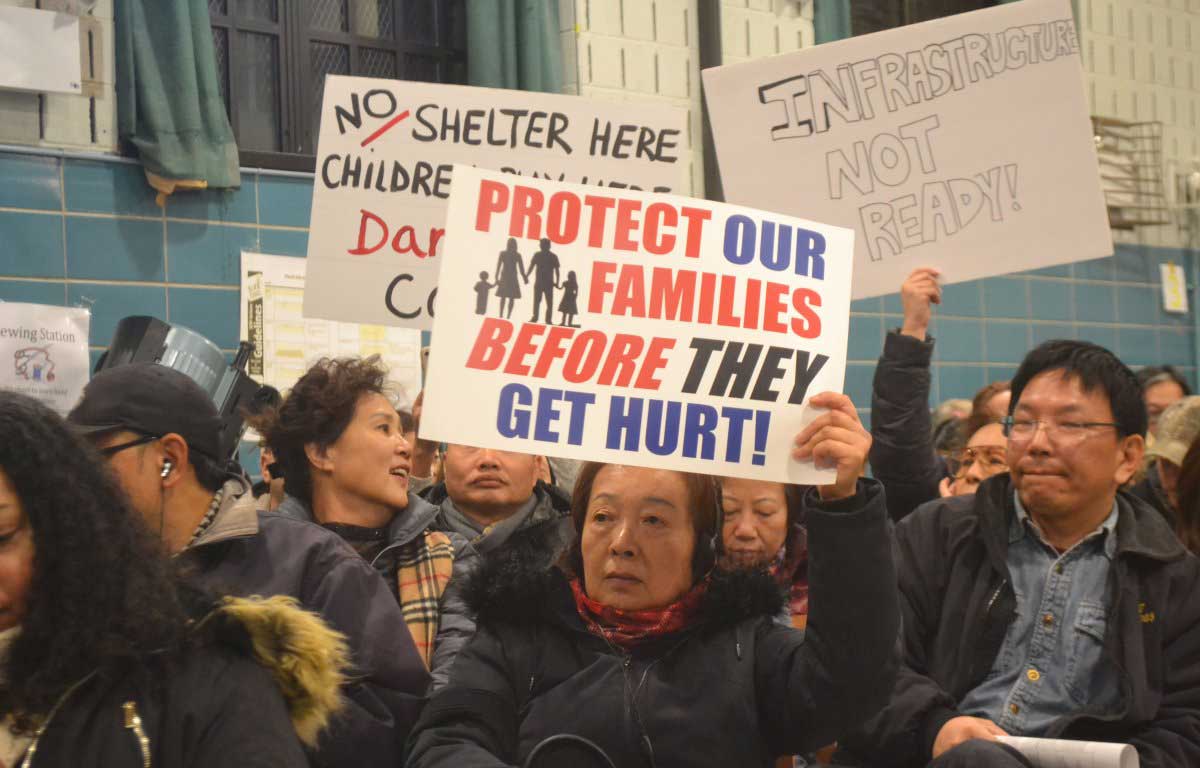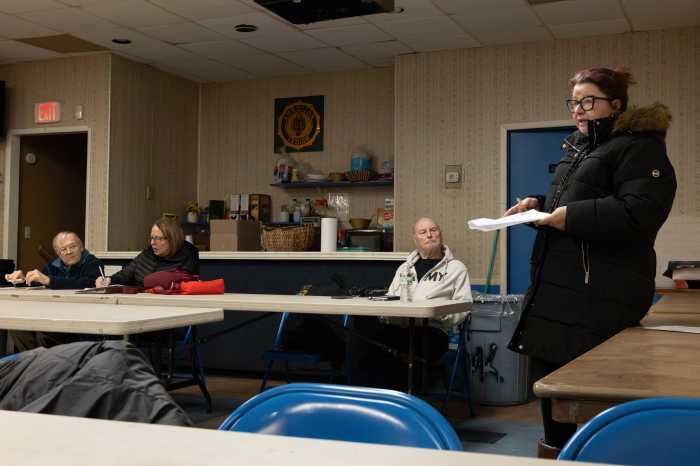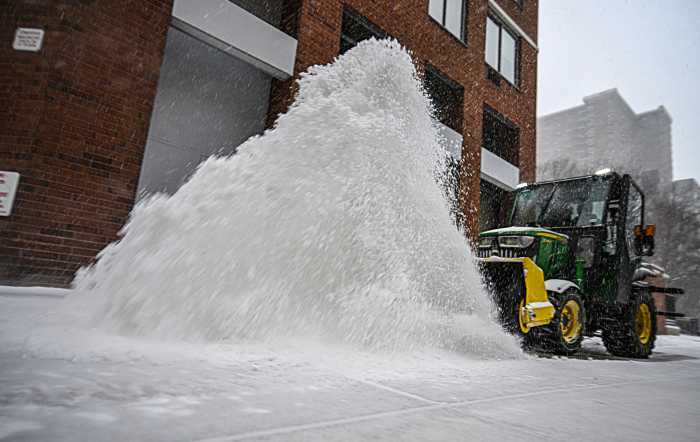By Jenna Bagcal
The Department of Homeless Services (DHS) faced the residents of College Point at a shelter town hall meeting Monday night that left protesters with more questions than answers.
Hundreds of residents filled the auditorium at PS 29 on Dec. 18 to see what DHS had to say about the impending single-men’s shelter at 127-03 27th Ave. Dozens more people who could not get into the ticketed event once the venue reached capacity waited outside in the cold, as the entrance was guarded by local police officers.
DHS representatives were joined by nonprofit homeless services provider Westhab for the town hall. Much of the information — including the number of beds and shelter security — had already been shared by DHS First Deputy Commissioner Jackie Bray at the College Point Civic Association meeting weeks before.
Protesters, which included College Point residents as well as neighbors in Whitestone, Flushing and Bayside were asked to sign up to ask questions and responses from DHS and Westhab elicited “boos” and jeering from the crowd of irate residents.
“Those who are most vulnerable amongst us need somewhere to lay their head, they need somewhere to receive services, they need somewhere with people who are committed to their second chance,” said Bray.
College Point resident Denise Zayas — who is legally blind — said she does not feel safe with a homeless shelter being put up in the community.
“Westhab isn’t answering 911 calls and I do not feel that you can keep us safe,” Zayas said. “So it’s not fear that you’re hearing, it’s anger at the fact that no one consulted us.”
“DHS has an incredibly tight relationship with the NYPD. Our security is managed and overseen by the NYPD,” said Bray, who added that the agency coordinates with local precincts and police officers for all of their shelters.
Vice chair of Community Board 7 Chuck Apelian questioned the legality of the shelter being built in a manufacturing district.
“You’re building this in a manufacturing district. It’s an M1 and in a manufacturing district, residential use is not allowed at all,” said Apelian.
“Transient use is allowed in an M1 zone. This is transient use,” said Bray. “We have opened shelters for years in M1 zones and DOB [Department of Buildings] has approved them for years. What we’re doing is consistent with that”
Local politicians in attendance at Monday night’s town hall included City Councilman Paul Vallone, state Assemblyman Dan Rosenthal and state Senator-elect John Liu, who, until yesterday, had been noticeably absent from shelter rallies and conversations.
The former New York City comptroller said he was concerned with the economics involved in opening up the shelter after Bray shared that the entire shelter contract would cost approximately $9 million annually. This would include housing each shelter resident, services, maintenance, transportation and employee salaries.
“Somebody is making a lot of money off this deal,” said Liu. “People understand that there is a homeless crisis going on in this city, but you gotta do a better job. And you gotta think about how many more people you would have been able to serve with the $9 million if you had put it in a more efficient location and made sure that the deals were put together in the right format.”
“You guys are here, sent by the mayor, to take the bullets for him,” Liu added. “Well, you know what? We’re not blaming you personally, but the city has to be held accountable for this.”
Residents have been protesting against the shelter since October when Vallone confirmed that it would be coming to College Point.
































